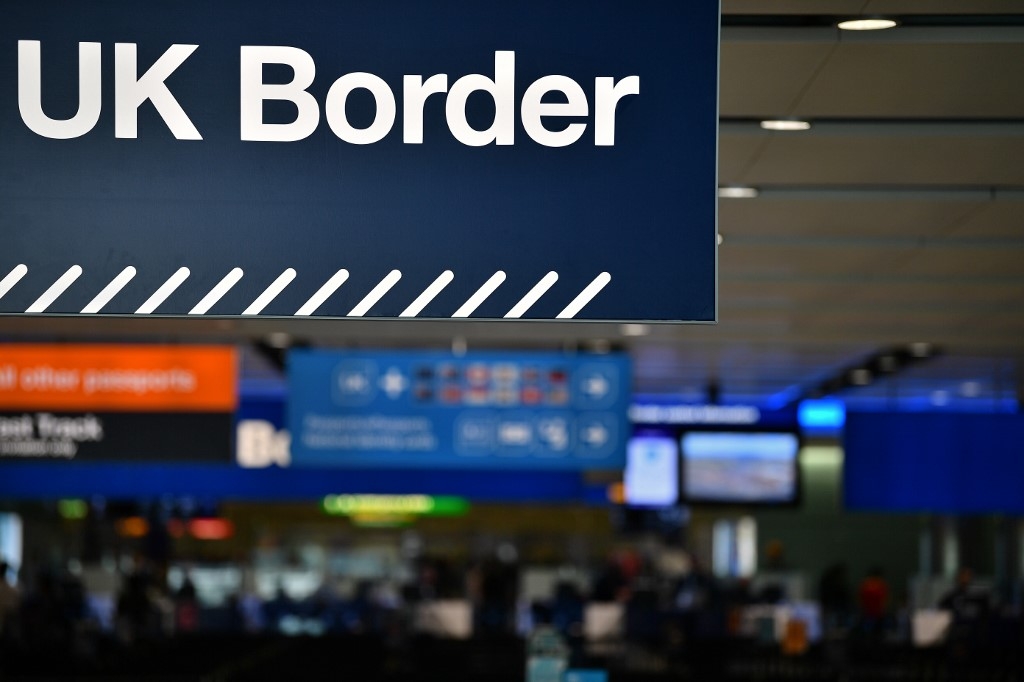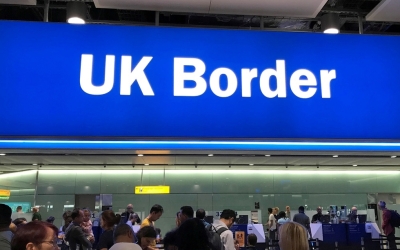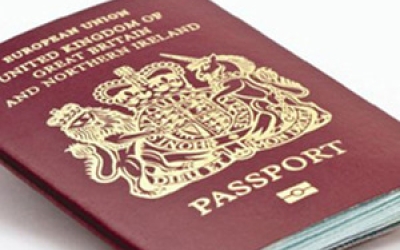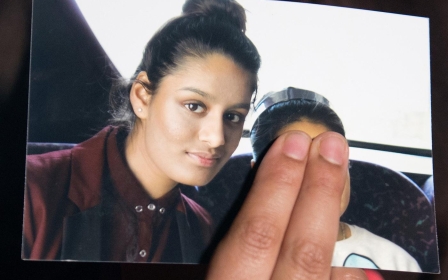Legal setback for men fighting to regain British citizenship

Two men fighting British government efforts to strip them of their citizenship have suffered a setback after a court said on Thursday that their appeals needed to be heard again.
The two men, known as E3 and N3, are both from Bangladeshi backgrounds but deny being dual nationals and last year won their appeal at the Special Immigration Appeals Commission (SIAC) which ruled that they had been left stateless.
New MEE newsletter: Jerusalem Dispatch
Sign up to get the latest insights and analysis on Israel-Palestine, alongside Turkey Unpacked and other MEE newsletters
But in a judgment, the Court of Appeal ruled that SIAC had wrongly placed the burden of proof on the government to show that the men had not been made stateless, rather than on the men themselves to prove that they were stateless.
“The burden of proof on the issue of statelessness was on E3 and N3 throughout,” the judgment said, adding that this “error in law” had “infected the reasoning of SIAC”.
The court said the case should be returned to SIAC for the issue of statelessness to be decided by a differently constituted commission.
The original case hinged on interpretations of Bangladeshi nationality law and on the weight carried by a note verbale, a semi-formal diplomatic note, sent by the Bangladeshi foreign ministry in response to British government questions about the status in law of British nationals with possible entitlement to Bangladeshi citizenship.
The government interpreted this note as indicating that the men, one of whom was born in Bangladesh and the other in the UK, were dual nationals.
The UK and citizenship-stripping powers
+ Show - HideThe UK has been described by researchers as a “global leader in using citizenship deprivation as a counterterrorism measure”.
Historic citizenship-stripping powers targeted at naturalised citizens on disloyalty grounds had largely fallen into disuse prior to 2002, when the government introduced new measures in an attempt to revoke the citizenship of Abu Hamza, an Egyptian-born cleric subsequently convicted of terrorism in the US.
The 2002 legislation allowed for British-born nationals as well as naturalised citizens to lose their nationality rights. Successive governments gradually broadened the scope of the powers so that home secretaries can now deprive anyone of citizenship if they are satisfied that doing so is “conducive to the public good” and would not leave an individual stateless.
No criminal conviction is required. Letters often state that individuals have been assessed as presenting “a risk to the national security of the United Kingdom”.
The government’s use of the powers surged to unprecedented levels in response to the perceived threat posed by British nationals returning from Syria.
Between 2010 and 2015, 33 people were stripped of their citizenship, according to Home Office figures. In 2016, 14 people were deprived, and in 2017 the number jumped to 104.
In 2018, the figure was 21, and in in 2019 - when Shamima Begum was among those targeted - it was 27. It then dropped to ten in 2020 and eight in 2021.
Some subjects of citizenship-stripping orders argue that they have been left effectively stateless, because the government bases its assessment that they are dual nationals on a right of citizenship to a parent’s country of birth, even if they have never taken up that citizenship or even visited the country.
In some cases the Special Immigration Appeals Commission, which rules on citizenship cases, has agreed: it has ruled in favour of British nationals of Bangladeshi descent on the grounds that Bangladesh does not consider them citizens if they have not claimed Bangladeshi nationality before the age of 21.
Human rights organisations and lawyers have compared the powers to “medieval exile and banishment”. Critics also point out that the powers create a two-tier system in which only those deemed to be dual nationals are at risk of losing their British citizenship; a measure that discriminates against naturalised citizens, immigrants and their children.
SIAC originally ruled that the men had lost their Bangladeshi citizenship when they were 21 because Bangladeshi law required them to take positive action to keep it before they reached that age.
Lawyers for E3 and N3 argued that the British government’s reliance on the note was undermined by inconsistent statements by the Bangladeshi government regarding its nationality law.
They also asked for permission to use newspaper reports about Shamima Begum as fresh evidence in the case, citing comments by Bangladeshi Foreign Minister Abdul Momen in which he said the London-born teenager was not a Bangladeshi citizen but a British citizen by birth who had never applied for dual nationality.
Begum, who travelled to Islamic State-held territory in Syria and is currently being held in a detention camp in the north-east of the country, is also appealing against the loss of her citizenship.
The Court of Appeal said the reconstituted commission should give “proper consideration to the status and effect of the note verbale”, but also allow the men to bring forward any evidence on which they wanted to rely “suggesting an inconsistency of approach on the part of the Bangladeshi government”.
Contentious powers
The Home Office’s use of expansive citizenship-stripping powers over the past few years in response to the perceived threat of returnees from Syria has been highly contentious, with more than 100 people targeted with revocation orders in 2017 compared with just 33 between 2010 and 2015.
The government is currently being challenged in at least 26 appeals.
Both N3 and E3 were stripped of citizenship by the Home Office on “terrorism-related and national security grounds” and N3’s case is understood to be Syria-related.
But he has denied wrongdoing and said he was involved in aid work in Turkey.
SIAC cases are notoriously difficult to fight because the government can rely on closed evidence which the court hears in secret and which even appellants and their lawyers cannot see.
Last week, Tauqir Sharif, an aid worker from London based in northern Syria, told Middle East Eye he was boycotting his own SIAC appeal and described the system as an “affront to justice”.
Lawyers for E3 and N3 declined to comment. The Home Office said it did not comment on individual cases.
Middle East Eye delivers independent and unrivalled coverage and analysis of the Middle East, North Africa and beyond. To learn more about republishing this content and the associated fees, please fill out this form. More about MEE can be found here.







